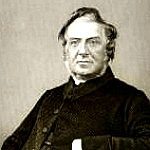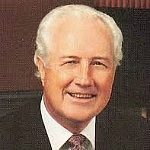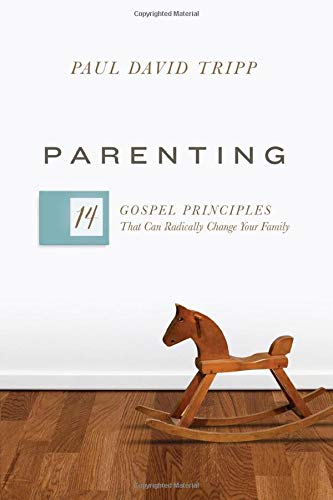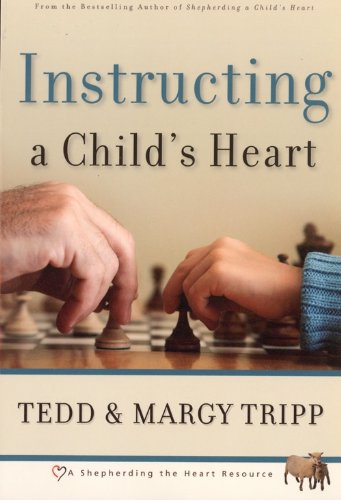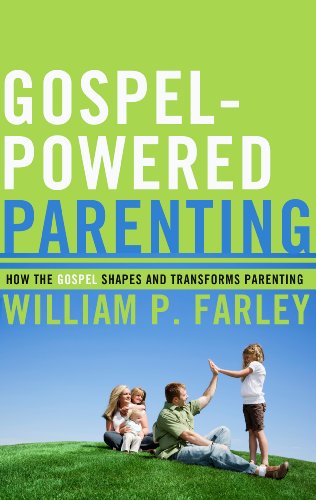Quotes about Parenting-Influence
Here’s what we should learn: If we want our children to hear the gospel from us, they must see the gospel’s impact upon us. How we live before them powerfully preaches the gospel and its implications for our lives.
The Godliest Parents, Christian Communicators Worldwide, www.CCWtoday.org. Used by Permission.
Our attempts to live the gospel expose our failings, which in turn amplifies our humility, which in turn makes us attractive to our children. The gospel is the good news that our children do not need perfect examples. They need humble examples.
Gospel-Powered Parenting, 2009, P&R Publishing, p. 119, Used by Permission. Get this book!
Effective parents equip their children to overcome the world – not by changing and controlling their environment (things external to their children), but by going after their children’s hearts. We change their hearts by teaching the gospel, modeling the gospel, and centering our homes on the gospel. The gospel, rightly understood and modeled, makes Christianity attractive. Effective parents make the gospel so attractive that the world cannot get a foothold in their children’s hearts.
Gospel-Powered Parenting, 2009, P&R Publishing, p. 24, Used by Permission. Get this book!
A father that [disciplined] his son for swearing, and swore himself whilst he [disciplined] him, did more harm by his example than good by his correction.
A Puritan Golden Treasury, compiled by I.D.E. Thomas, by permission of Banner of Truth, Carlisle, PA. 2000, p. 95.
If parents would have their children blessed at church and at school, let them beware they give their children no corrupt examples at home by any carelessness, profaneness, or ungodliness. Otherwise, parents will do them more harm at home than both pastors and schoolmasters can do them good abroad. For the corrupt example of the one fighteth with the good instruction of the other, which is so much the more dangerous because that corrupt walking is armed with nature, and therefore more forcibly inclineth the affections of the children to that side.
A Puritan Golden Treasury, compiled by I.D.E. Thomas, by permission of Banner of Truth, Carlisle, PA. 2000, p. 203.
Above all, we [as parents] must make sure that the open book of our lives – our example – demonstrates the reality of our instruction, for in watching us they will learn the most.
Disciplines of a Godly Man, Crossway Books, 1991, p. 53. Get this book!
Let your children have this conviction in their hearts, “If there are but two real Christians in the world, my father is one, and my mother is the other.” It is dreadful – but not uncommon for children to employ themselves in contrasting the appearance which their parents make…at the Lord’s Table – and at their own table; in the house of God – and at home!
To be a mother is by no means second class. Men may have the authority in the home, but the women have the influence. The mother, more than the father, is the one who molds and shapes those little lives from day one.
If we measure our success as parents solely by what our children become, there is no inviolable guarantee in Scripture that we will experience absolute success on those terms…The true measure of success for Christian parents is the parents’ own character. To the degree that we have followed God’s design for parenting, we have succeeded as parents before God.
God has so designed that children, in their formative years, naturally look to their [parents] in order to emulate them… "Mold me – impart to me what’s most precious to your hearts." But so often a child sees behind all of the religious garb of his parents and finds what is really precious to them! He sees patterns of heart which lure them toward a pursuit of wealth, leisure, athletics, entertainment, television, shopping or religious busyness. A child can easily see when these things are more exciting to his parents than devotion to Jesus Christ! When this proves to be the case, a child will embrace those same affections – to the detriment of his own soul!
Parents, be exemplary. Your example may do much towards the salvation of your children; your works will more work upon your children than your words; your patterns will do more than your precepts, your copies more than your counsels.
A man ought to live so that everybody knows he is a Christian…and most of all, his family ought to know.
The secret of homemade rule is self rule, first being ourselves what we want our children to be.
Parents must be aware of the personal value of truth for their own sakes and not just for the sakes of their children. We cannot simply make a child believe in a truth because it’s good for them. Their perceptive spirits will sense when we are doing something to engineer or manipulate a certain response. Instead it is the authenticity of parental commitment to truth apart from the lives of the children that brings freedom to share or pass on that truth to them. In other words, a mature motive for passing on truth is that as a parent I hold that truth to have value for my life, independent of my children and their response to it (Tom Cohen).
Parenting – not politics, not the classroom, not the laboratory, not even the pulpit – is the place of greatest influence. To suppose otherwise is to be captive to the shriveled secular delusion. We must understand that it is through the godly family that God’s grace, a vision of God, a burden for the world, and a Christian character are most powerfully communicated… Parents, don’t abandon your place of influence. It is still true that “the hand that rocks the cradle rules the world.” Believe it (Kent and Barbara Hughes).
Disciplines of a Godly Family, Crossway Books, 2004, p. 16. Get this book!
Who you are is more important than what you say. Bottom line: The quality of your own spiritual life is of greatest importance to your child’s spiritual development. This was one of the most important insights of the Puritans on the subject of the family. Here is what two of them wrote: “Precept without patterns will do little good; you must lead [children] to Christ by examples as well as counsel; you must set yourselves first, and speak by lives as well as words; you must live religion as well as talk religion” (Eleazar Mather). “Be sure to set good example before your children… Other methods of instruction probably will not do much good, if you don’t teach them by a godly example. Don’t think your children will mind the good rules you give them if you act contrary to those rules yourselves… If your counsels are good, and your examples evil, your children will be more like to be hurt by the latter, than benefited by the former” (Benjamin Wadsworth). Larger Quote: (Kent and Barbara Hughes).
Disciplines of a Godly Family, Crossway Books, 2004, p. 61. Get this book!
The greatest stumbling block for children in worship is that their parents do not cherish the hour. Children can feel the difference between duty and delight. Therefore, the first and most important job of a parent is to fall in love with the worship of God. You can’t impart what you don’t possess (john and Noel Piper).
Good instructions are to be accompanied by good example. That teaching which issues only from the lips is not at all likely to sink any deeper than the ears. Children are particularly quick to detect inconsistencies, and despise hypocrisy… How they need to be constantly on their guard against anything which might render them contemptible in the eyes of those who should respect and revere them!
The most fundamental task of a mother and father is to show God to the children. Children know their parents before they know God. This is a huge responsibility and should cause every parent to be desperate for God-like transformation. The children will have years of exposure to what the universe is like before they know there is a universe. They will experience the kind of authority there is in the universe and the kind of justice there is in the universe and the kind of love there is in the universe before they meet the God of authority and justice and love who created and rules the universe. Children are absorbing from dad his strength and leadership and protection and justice and love; and they are absorbing from mom her care and nurture and warmth and intimacy and justice and love – and, of course, all these overlap.
This Momentary Marriage – A Parable of Permanence, Desiring God Foundation, 2008, p.143-144, www.DesiringGod.org.
Instruction, and advice, and commands will profit little, unless they are backed up by the pattern of your own life. Your children will never believe you are serious, and really wish them to obey you, so long as your actions contradict your instruction. One minister I know made a wise remark when he said, “To give children good instruction, and a bad example, is the same as pointing out to them the way to heaven, while we take them by the hand and lead them down the road to hell” (Tillotson).
Fathers and mothers, do not forget that children learn more by the eye than they do by the ear… Imitation is a far stronger principle with children than memory. What they see has a much stronger effect on their minds than what they are told.
Children are very quick observers; very quick in seeing through some kinds of hypocrisy, very quick in finding out what you really think and feel, very quick in adopting all your ways and opinions. You will often discover that, as the father is, so is the son.
Do we adorn Jesus, make Him look attractive? Is He noticeably our delight? Or do our children see from us a Jesus that keeps us from hell, but creates a hell on earth because of the apparent burden and joylessness that comes from following Him? Do they see Jesus as an unwelcomed taskmaster with unfair, meaningless and despicable rules?
Parents, like it or not, you are an example for your children for good or for bad. Your children may have other examples, but would they say you are their primary “example” (Phil. 3:17) in their lives? Or what about the other word Paul uses in verse 17 – “pattern” (Tupos)? Here’s the Lexical illustration for that word in the original language: “Taking a stone out of the ground leaves a hole that bears the contours of the stone, but in effect the stone has made the impression.” Parents, your children will follow an impression set for them. Are you the one setting the positive impression, that mold that they can fit into? We may differ with giftedness, but every Christian has the potential to live a godly life and be an example and pattern for their child. Who are your child’s heroes? Are they spiritual? Do you make the list?
I was cradled in the home of piety, nurtured with the tenderest care, taught the gospel from my youth up, with the holiest example of my parents, the best possible checks all around to prevent me running into sin.
Train up a child in the way he should go – but be sure you go that way yourself.
May God deliver us from a ho-hum attitude. Young people can read their parents. They can see right through their teachers, and they turn away in disgust from a make-believe faith.
Training a child to follow Christ is easy for parents. All they have to do is lead the way.
All parents, fathers, mothers, must take care that they are a good example to their children and families, that they express God’s holy truth in their lives. Godly examples are like the soul of the doctrine to children. Are parents desirous for their children to be religious, love God’s Word, pray much to the Lord, be humble, sober, friendly, modest, righteous; let the parents be a good example, for therewith God’s truth will be pressed into their hearts. “For”, says Plutarchus, “the life of the parents is like a mirror, and by its light the children will refrain from evil.”
When earthly parents model the love of a heavenly Father who “sees not as man sees,” we give our [children] permission to measure beauty differently than their peers: by focusing not merely on the outward appearance, but on the heart.
To Your Daughter, Speak the Truth, February 16, 2016. Seen on the Gospel Coalition website.
You see, if you aren’t talking to your kids, someone else is. The statistics indicate that teenagers are spending three hours a day watching TV. Preschoolers are watching as much as four hours per day. If teenagers are listening to three hours of TV every day and averaging five minutes a day talking with their dads, who is winning the influence battle? If your preschooler watches four hours per day, how many hours is he hearing from you about how God runs His world? It doesn’t take X-rated violence, sex and language to have an ungodly influence. Even the “good” programs for children can be “bad company” if they offer an exciting, satisfying world that ignores (or denies) the sovereign God of the Bible. Do you really want your children to get the impression that it’s okay to ignore God most of the time?
Everyday Talk, Talking Freely and Naturally about God with Your Children, Shepherd Press, 2004, p. 19-20, Used by Permission. Get this book!





